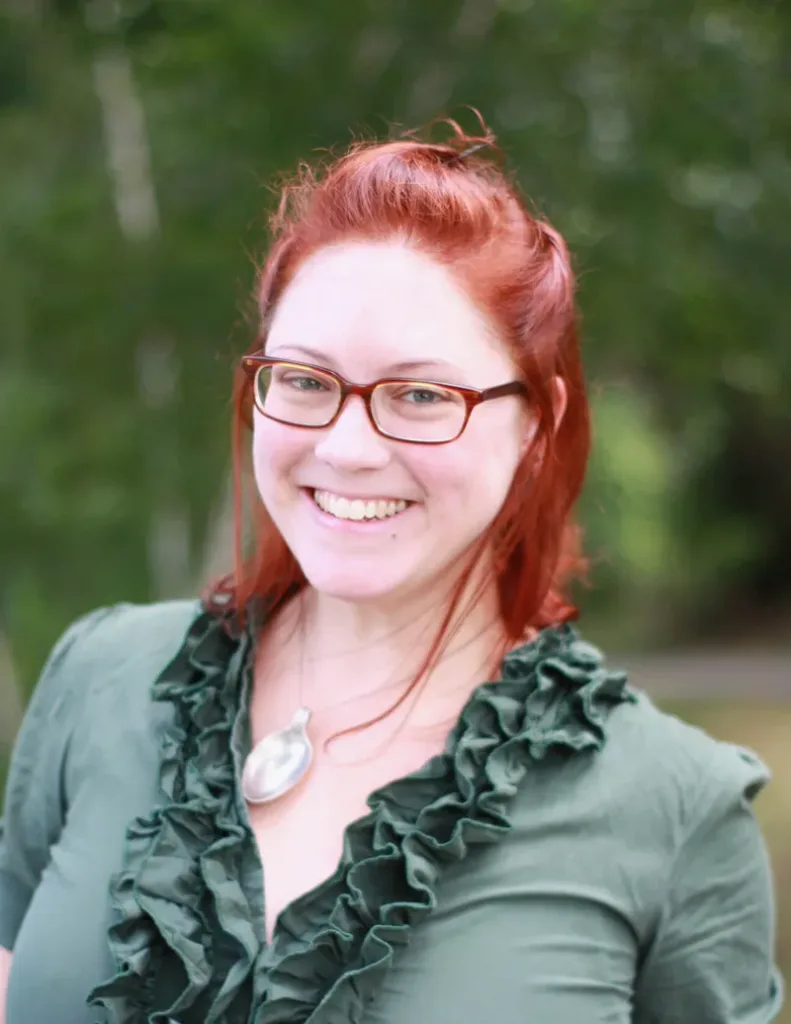
By: Lora Doughty
Directed Research in Costa Rica
Here at SFS Costa Rica, during the final 4 weeks of fall and spring semesters, students dedicate their time to Directed Research (DR) projects. This semester, students completed the 7 day long fieldwork component on Monday November 25th before working on analyzing data and writing research papers under the guidance of their DR advisers, our brilliant SFS Costa Rica faculty: Mary Little, Edgardo Arévalo and Milena Cambronero.
Prior to undertaking, what for me is the essence of SFS – research in the field, students chose their DR project. 7 students opted to spend their time in Mastatal where they were researching the ecological and socioeconomic relationship between local communities and La Cangreja National Park. A further 7 students elected to work in Villa Blanca where they researched the effects of soundscape ecology in habitats subject to anthropogenic land use. The 8 remaining students stayed in Atenas where they worked on a project that aimed to examine the levels of contamination of Quebrada Matias (a local stream) and to assess the communities’ perceptions of water contamination.
Environmental Ethics and Development DR:
This directed research project, led by professor Mary Little, centred on an evaluation of the socioeconomic and environmental relationship between the community to Mastatal and La Cangreja National Park. The village of Mastatal represents a prime example of the national shift from agriculture and cattle grazing to eco- and agri-tourism. There are now four eco-lodges in the area offering permaculture classes, chocolate tastings and nature tours. Our students explored the positive and negative externalities of the park and tourism on the community by conducting surveys with local residents and interviewing lodge owners, park rangers and indigenous leaders. Other students considered how some groups have been able to cultivate benefits from tourism and the gendered implications for new economic opportunities available to women. Students collaborated with local leaders to gain a better understand of this community-driven approach to conservation and provide research that will be shared with stakeholders for future development planning. *
I asked one of the students Uli what his favorite part of DR was and he responded: ‘I really liked getting to talk to people who work in the tourism industry in Mastatal – It was interesting to see how rural tourism differs from places like Manuel Antonio’
Another student Alyssa noted:
‘It was fun working with Mary […] she has a lot of connections in Mastatal and knowledge of the community and so we were able to see a different side to the community, for example getting to visit an indigenous group that most visitors to the area don’t know exists.’

All photos courtesy of Anna Chahuneau
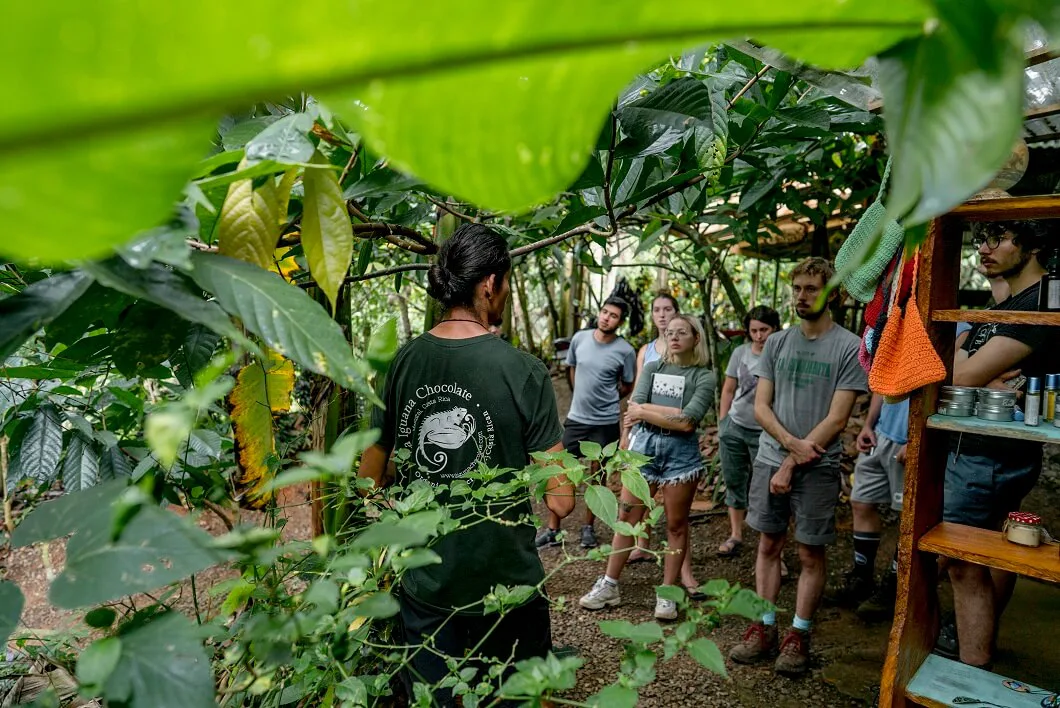
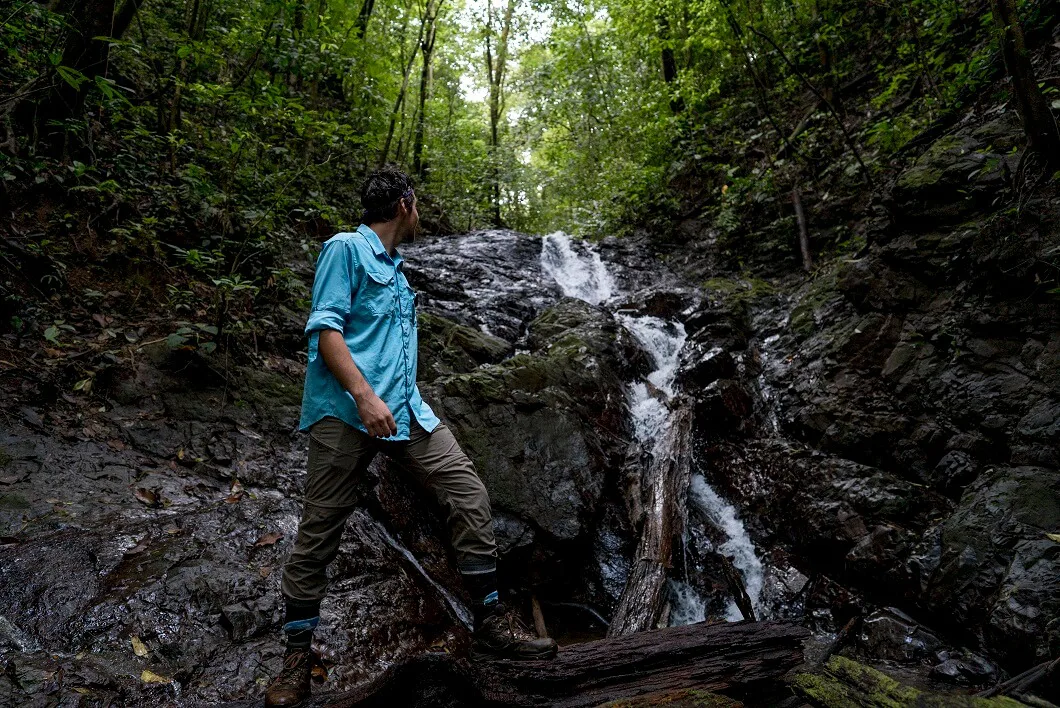
Tropical Ecology DR:
The 7 students who worked in Villa Blanca under the guidance of Edgardo Arévalo the professor of Tropical Ecology (TE) spent 7 days in the field/at a field research station collecting and analyzing data on a range of topics including: early morning choruses (bird calls) and the affect of foreign and native bird calls on local species. The group would rise early each morning and place sound meters in various locations and record bird calls for 3-4 hours. In the afternoon, most of the group members analysed the recordings collected and identified bird species from the calls heard. A few of the group members would mist net and bird band and would also use foreign and native playback recordings to analyse how birds responded. In the evenings, the group would watch and learn from Edgardo as he used mist nets to collect bats and then examine them carefully to record wingspan, species, and whether or not the bats were currently in their mating season.
One of the students on the TE DR, David, commented that:
‘Seeing Edgardo work outside of the classroom setting was really cool!’
Jeremiah (Jeb) from the same DR group told me that:
‘DR exceeded my expectations, and I had pretty high expectations for it […] I think it was the highlight of the whole program for me’

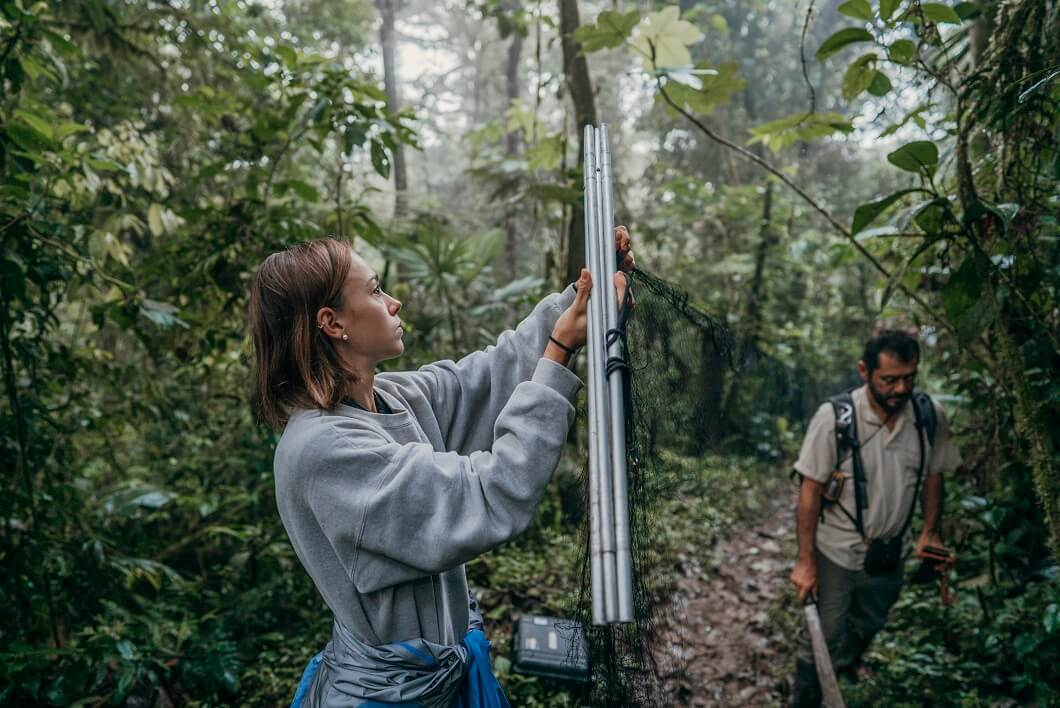

[well type=”well-lg” class=”arrow-well”]
Interested in exploring some of the world’s most incredible and complex environments? Experience a different kind of study abroad with SFS. Click to learn more!
[/well]
Natural Resource Management DR:
I accompanied Milena Cambronero, the professor of Natural Resource Management (NRM) and 8 students as they undertook an examination of the stream in which: we walked the 4km length of the stream to examine its state, collected macroinvertebrates for analysis as indicators of water quality and analysed the forest cover surrounding the stream which is essential for conservation of the watershed. 2 students also worked on formulating an action plan for the recovery of the stream by interviewing local community members, many of who are members of a local environmental preservation association.
One of the students in the NRM group, Zoe noted:
‘I think it was cool to be able to work closely with Milena in a smaller group and get to learn from her’ […] ‘the week we were out in the field was one of my [her] favorite weeks here’
Jada another student from the NRM group added: ‘There was a nice reward at the end when we got to see the waterfall after a tough hike’
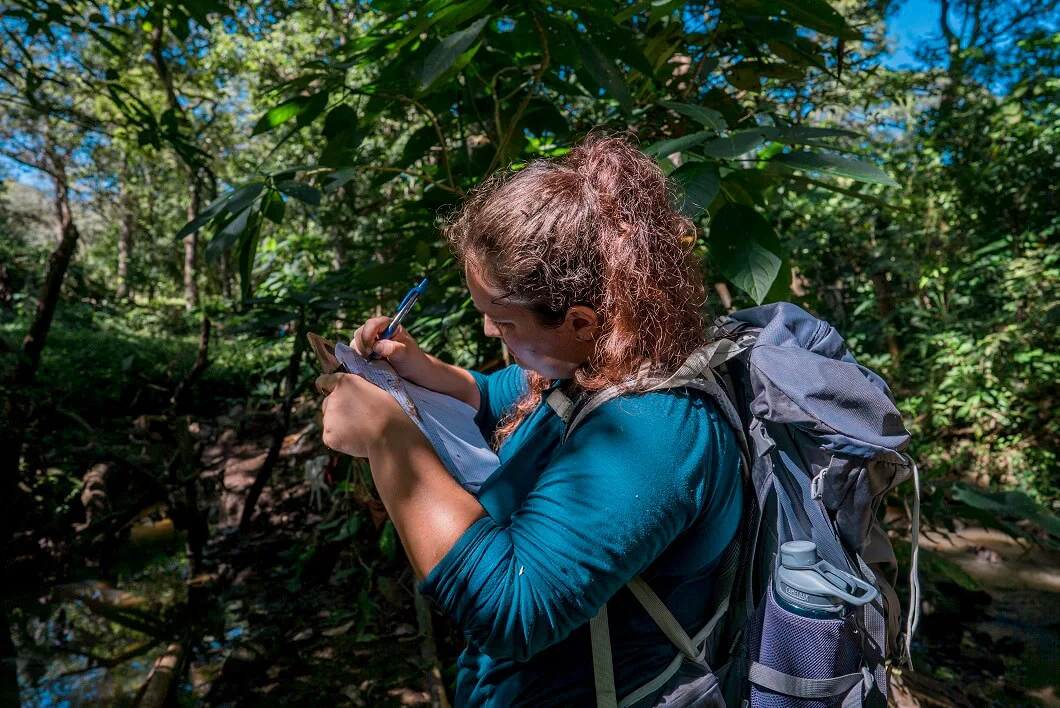
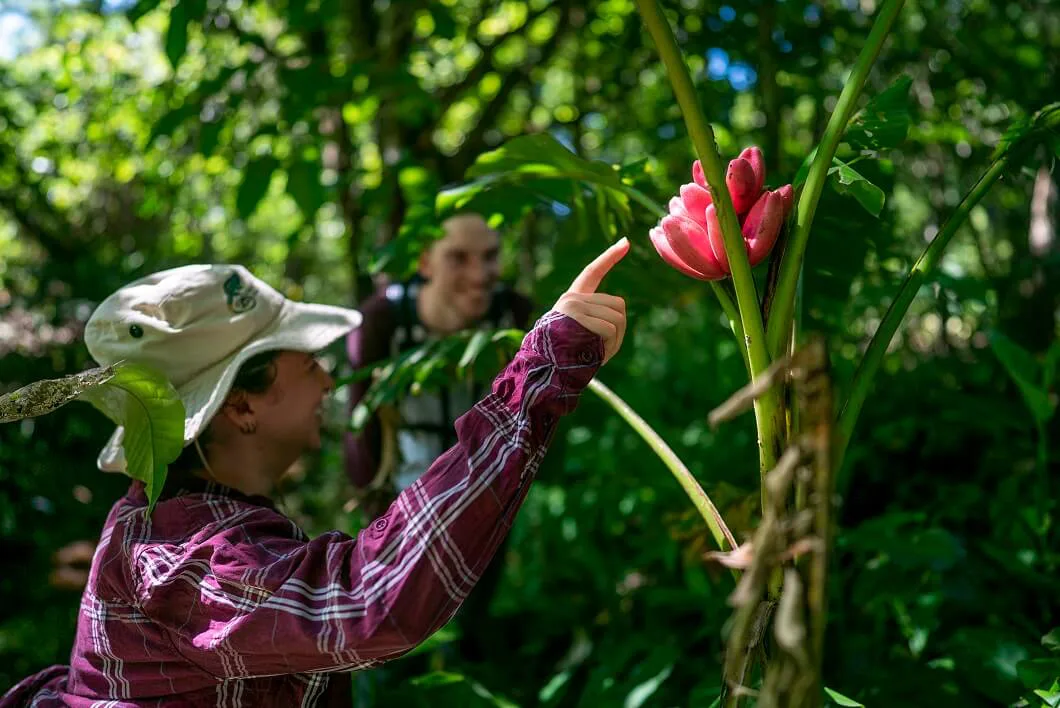
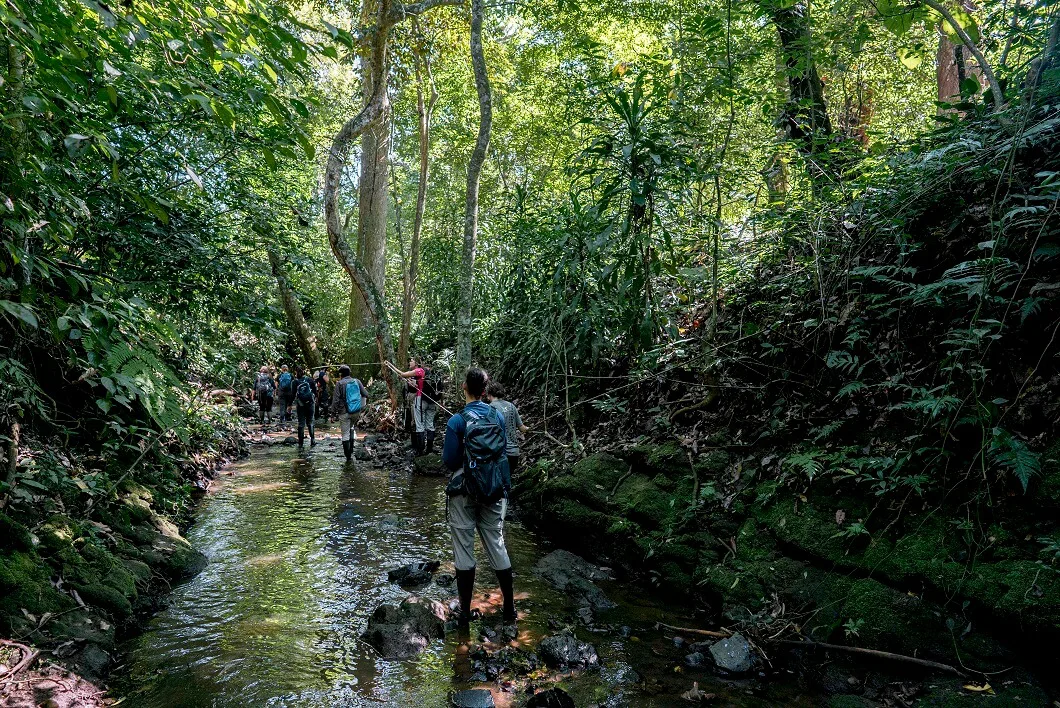
The students in all of the DR groups worked incredibly hard and showed dedication to their research topics. The general feeling was that the Directed Research portion of the semester long SFS Costa Rica program is something special. Numerous students commented on how much they enjoyed working in a more intimate setting with faculty and that they were pleased to able to build on their prior SFS field skills in this longer field research experience.
As students are preparing to submit papers, create posters and present their research outcome, there is a general buzz of excitement on campus and several students have been eager to share their paper topics.
As an avid fan of experiential education, this DR experience only further highlighted to me the importance of complementing classroom learning with field work and I am so happy to hear that so many of our students had meaningful research weeks!
Related Posts

Restoration on a Cinder Cone: A Syntropic Story

